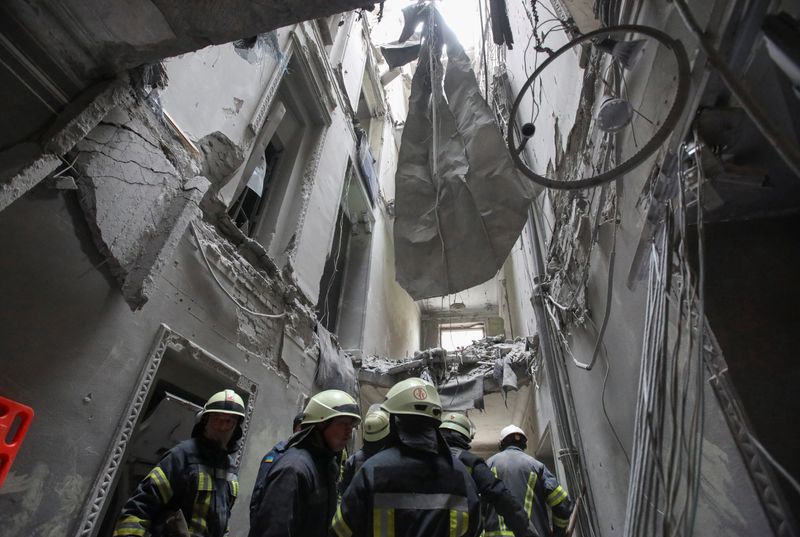Wall St futures flat amid US-China trade jitters; bank earnings in focus
By Geoffrey Smith
Investing.com -- Crude oil prices surged back over $100 a barrel on Thursday as Western and Russian officials played down suggestions of progress in peace talks between Russia and Ukraine.
A Kremlin spokesman said that reports claiming solid progress were "wrong," while U.S. officials pointed to intelligence showing Russia extending its air and artillery campaign across the south of the country as well as moving reinforcements from the Far East and Caucasus. Ukrainian officials, meanwhile, repeated that they would not consider ceding territory to end the war, a key demand of Russia, which wants recognition for its annexation of Crimea in 2014 and for the breakaway republics it has sponsored in eastern Ukraine.
By 11:20 AM ET (1520 GMT), U.S. crude futures were up 7.0% at $102.20 a barrel, while Brent futures were up 7.7% at $105.61 a barrel. U.S. gasoline RBOB prices, meanwhile, were up 5.8% at $3.1606 a gallon.
The market continues to be prey to wild price swings due to a loss of liquidity from the futures market, as financial players shun the increased volatility seen in the three weeks since the invasion. Combined open interest in the benchmark WTI and Brent contracts is currently the lowest since 2016.
Against that backdrop, the market is still absorbing warnings from the International Energy Agency on Wednesday that some 3 million barrels a day of Russian production could be shut in from April, due to the difficulty of finding buyers. Western oil majors such as Shell (LON:RDSa) and BP (NYSE:BP) have said they won't buy Russian crude any more, while many more buyers are trying to find alternative sources to avoid the risk of violating U.S. sanctions unintentionally. By contrast, Indian plans to circumvent Western measures by trading in non-dollar currencies are still at an embryonic stage.
Vagit Alekperov, CEO of Lukoil, was quoted by RIA Novosti as saying that he still hoped to avoid any fall in production this year, noting that his company's drilling activity was up 5% on the year so far in 2022.
Importantly, Western governments are still failing to break the unity of the OPEC+ bloc and tease more oil out of the Persian Gulf to replace the barrels that will likely be lost from Russia. The United Arab Emirates' foreign minister said Thursday after a meeting with Russia's Sergey Lavrov that: "It is important to maintain the stability of energy and food markets," and signaled no deviation from the bloc's agreed path of output increases. That's important because the UAE, which has plenty of spare capacity, has repeatedly chafed at the slow pace of output increases over the last six months.
Prices were also supported by evidence suggesting that China's lockdowns to contain the latest outbreaks of Covid-19 may not be as severe as those seen two years ago, and may thus avoid a repeat of the sudden stop to fuel consumption witnessed then. Neighboring Japan said earlier Thursday that it would lift most remaining restrictions on economic life as the winter Covid wave ebbs. And in the U.S., data released on Thursday showed plenty of economic strength, with manufacturing output rising at its fastest in four months and initial jobless claims returning to their downward trend. Housing starts and building permits were also both stronger than expected.
